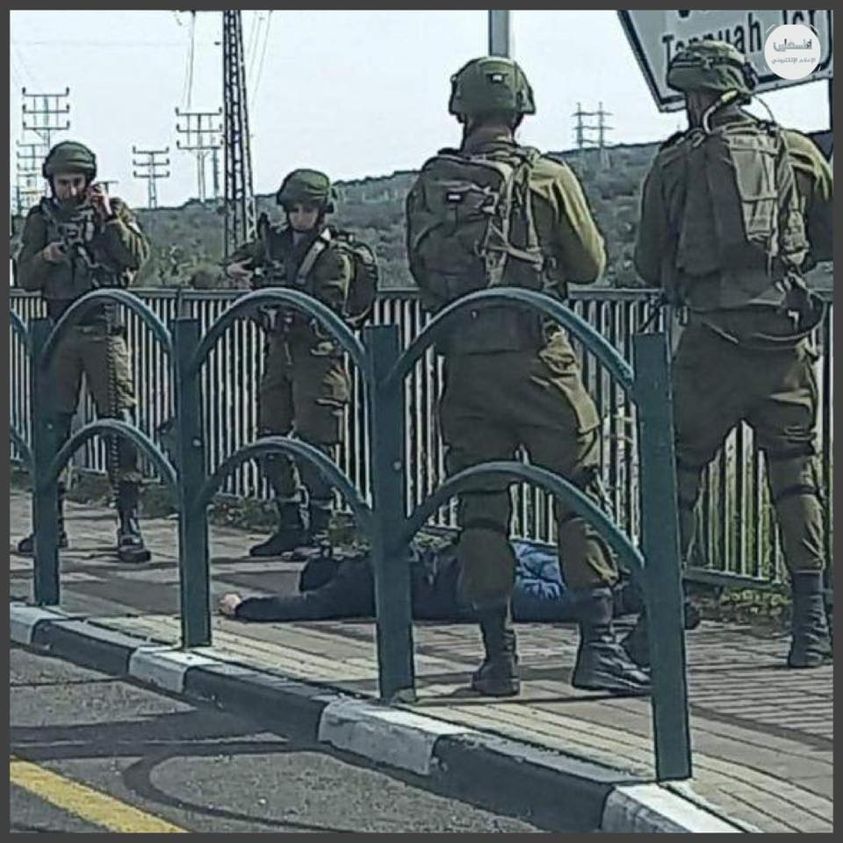The UN Human Rights Office in the occupied Palestinian territory (OPT) said it was alarmed by the impact of intensified Israeli forces’ operations on the right to life of Palestinians in the occupied West Bank, including East Jerusalem, and urged Israel to respect human rights law during military activity in the West Bank.
“Since the beginning of the year as of 30 June, Israeli forces have killed 60 Palestinians, including 14 boys and five women in the context of law enforcement operations in the West Bank, including East Jerusalem,” said the UN Human Rights Office, which accused the Israeli occupation forces of using “lethal force” against Palestinians demonstrating against illegal settlement activities, or confronting settlers or Israeli forces with stones or Molotov cocktails resulting in the alarming increase in Palestinian fatalities in the West Bank in the first half of 2022.
“Many of the cases monitored by UN Human Rights Office indicated that Israeli forces used lethal force in a manner that appears totally inconsistent with international human rights law,” it said in a statement. “In a number of incidents, it appears that lethal force was used by Israeli forces as a first rather than as a last resort to confront the alleged threat.”
On 10 April, Israeli forces shot and killed a 44-year-old Palestinian woman at a checkpoint near Husan, west of Bethlehem. The woman, who suffered from poor eyesight, was shot in the thigh from a distance of two meters as she continued walking towards the soldiers after they first shouted at her and then shot a warning shot in the air. The UN Office’s monitoring indicates she was advancing empty-handed and did not attempt any violent action against Israeli forces before she was shot.
On 11 May, in the context of stone-throwing by Palestinian youth, Israeli forces shot and killed a 16-year-old boy with live ammunition in the chest near his school in Al-Bireh, Ramallah, while he was standing at a distance of around 100 meters, not posing any concrete threat to soldiers.
The UN Human Rights Office also documented incidents where unwarranted lethal force was employed against Palestinian workers attempting to cross the Wall into Israel. On 8 May, Israeli forces shot with live ammunition and killed a 27-year-old Palestinian worker while he was attempting to cross the Wall near Jabara checkpoint, south of Tulkarem. The Israeli army publicly stated that the man was unarmed when shot. A similar incident took place on 19 June near Qalqiliya, where a 53-year-old worker was shot multiple times from the back and killed, allegedly for damaging the separation barrier.
The UN Human Rights Office also documented a number of incidents in which Israeli forces targeted the upper body of individuals with live ammunition in situations where they no longer appeared to pose any threat and in several instances were in fact running away.
On 15 March, Israeli forces killed a 16-year-old boy in Balata refugee camp in Nablus after he had approached an armored vehicle on a motorbike. Information collected indicated that the boy was shot multiple times with live ammunition in the back while already running away from heavily armed and protected Israeli forces.
On 30 April, Israeli forces shot several times in the back and killed a 26-year-old Palestinian man in Azzoun near Qalqiliya while he was running away after he had just thrown three Molotov cocktails at an IDF vehicle, in circumstances in which he no longer appeared to pose any threat.
The UN Human Rights Office also documented instances where Israeli forces appeared to follow the so-called ‘confirmation of kill’ procedure, employing further lethal force against a suspect who had been already injured and was no longer posing any threat, raising concern for extrajudicial execution.
On 7 March, Israeli police shot and killed a 22-year-old Palestinian man at the al-Qattaneen gate of the Al Aqsa compound in the Old City of Jerusalem, following a stabbing attack, by firing at his body and head while he had already lost consciousness and was lying on the ground injured.
In the absence of active hostilities in the West Bank, all these incidents should be analyzed through the legal framework regulating the conduct of law enforcement operations, said the UN Human Rights Office.
“International human rights law is clear: the use of firearms in the context of law enforcement operations is allowed in extremely limited circumstances, namely in self-defense or defense of others from an imminent threat of death or serious injury, and as a last resort. Even when necessary, force must be used in a manner, which minimizes harm and preserves life. Israeli use of lethal force has become a pervasive practice in the OPT, often employed regardless of the specific level of gravity of the potential threat detected and often as a first rather than as a last resort, contrary to international standards. This has directly led to now chronic levels of killings and injuries. The use of firearms causing death of persons not posing a threat to life or serious injury constitutes a violation of the prohibition of the arbitrary deprivation of life, and may amount to an act of willful killing, which is a war crime in the context of a military occupation attaching individual criminal responsibility.”
UN Human Rights Office in the occupied Palestinian territory echoed the concerns expressed by the UN Secretary-General that lack of accountability for these violations remains pervasive. “Such impunity also allows further violations to occur,” it warned.
It reiterated that there must be appropriate investigations into the actions of Israeli forces, including transparency on their outcomes, and anyone found responsible should be held to account with penal and disciplinary sanctions commensurate to the gravity of the violations. “As the UN High Commissioner for Human Rights has said, this culture of impunity must end now,” it said.



